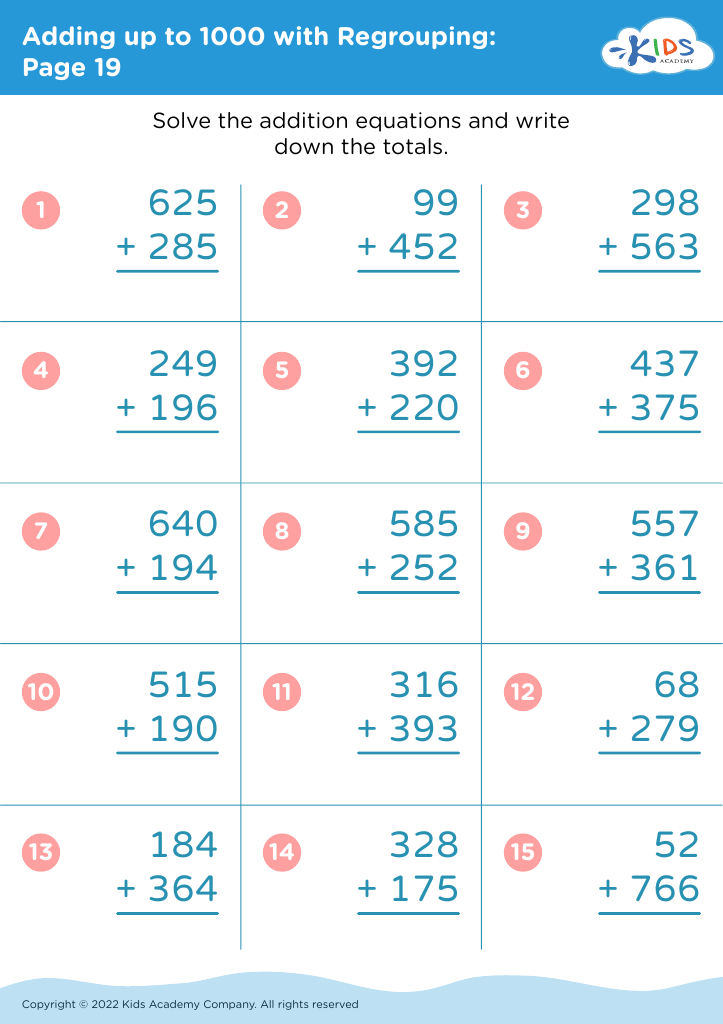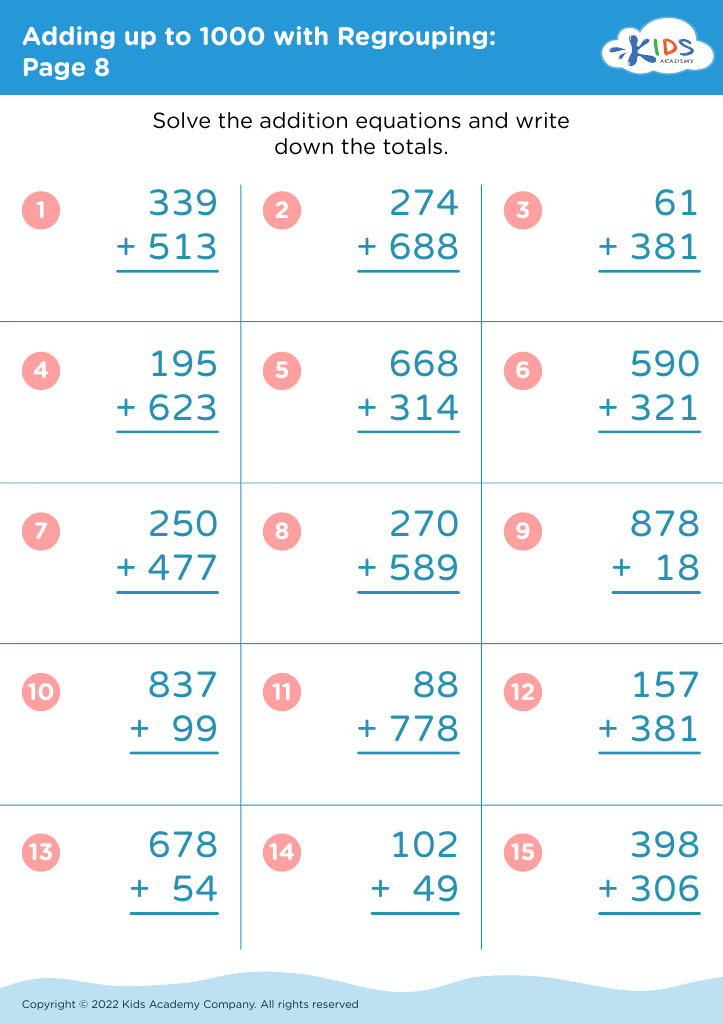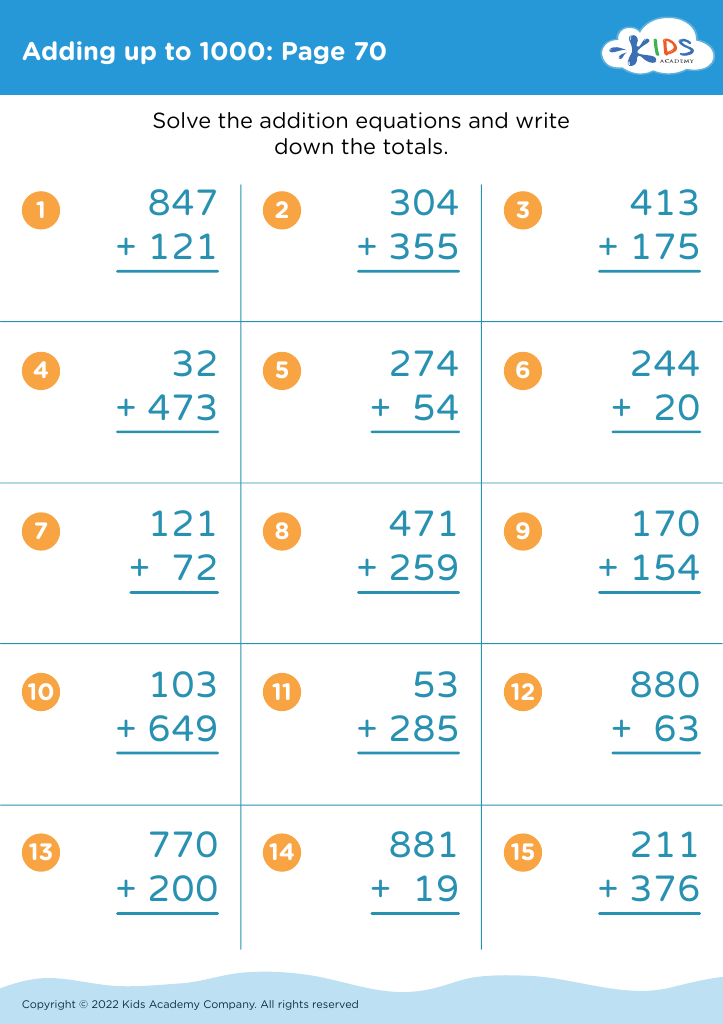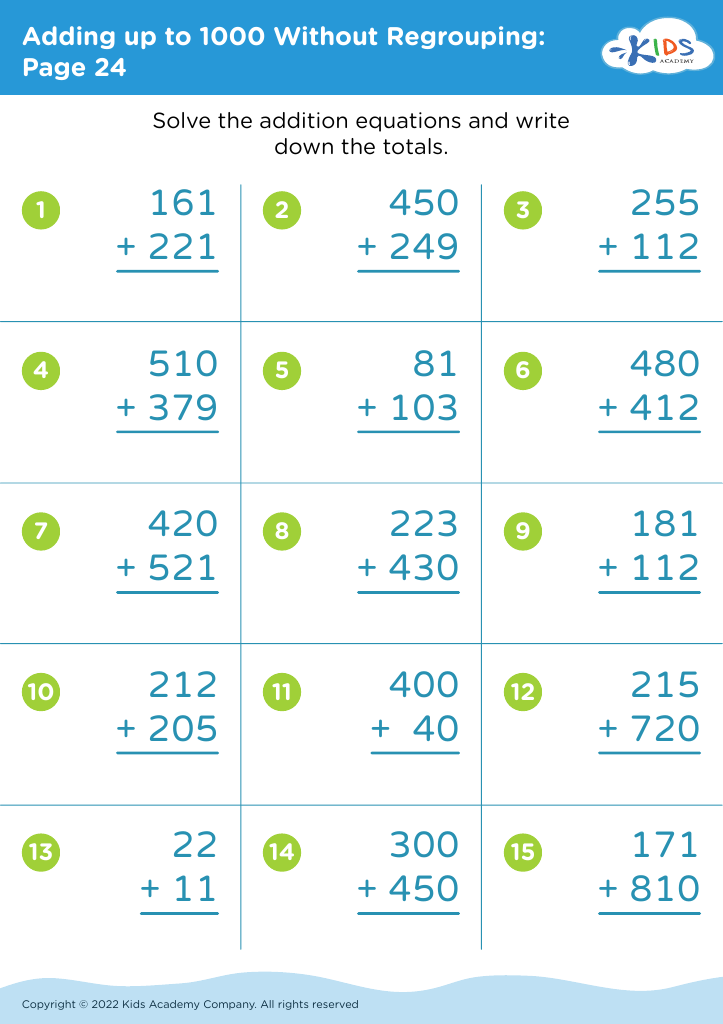Improving math skills Adding up to 1000 Worksheets for Ages 6-7
6 filtered results
-
From - To
Boost your child's math skills with our "Adding up to 1000" worksheets designed for ages 6-7! These engaging activities make learning addition fun and effective, helping young learners grasp the concept of summing numbers up to 1000. Our carefully crafted worksheets promote critical thinking and problem-solving, encouraging children to master addition through practice. Perfect for both classroom and home use, they align with early math education standards and cater to a variety of learning styles. Watch as your child builds confidence and improves their math proficiency, setting a strong foundation for future academic success. Start their math journey today!
Improving math skills, particularly in adding up to 1000 for ages 6-7, is essential for several reasons. Firstly, this foundational skill supports the development of critical mathematical concepts that will be built upon in later grades. Mastery of addition lays the groundwork for understanding subtraction, multiplication, and even division, equipping children with essential tools for more complex problem-solving.
Secondly, strong math skills foster confidence in students. When children grasp addition and can manage larger numbers, they experience a sense of accomplishment, which motivates them to engage more deeply with math. This confidence can also diminish math anxiety, enabling them to tackle challenges in future years with a positive mindset.
Moreover, everyday life presents numerous opportunities for practical application of math skills. From telling time and budgeting to measuring ingredients for recipes, good math proficiency allows children to navigate real-world tasks more effectively.
Lastly, parents and teachers play a key role in creating a supportive learning environment. By emphasizing the importance of these skills, they can help nurture a child's curiosity and perseverance in mathematics, leading to long-term academic success. Investing in math skills at this age sets the stage for a lifetime of opportunities and a strong foundation for higher education.






















